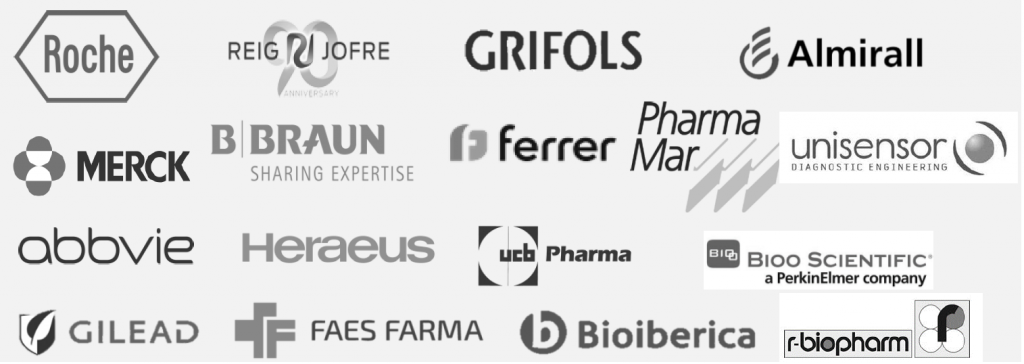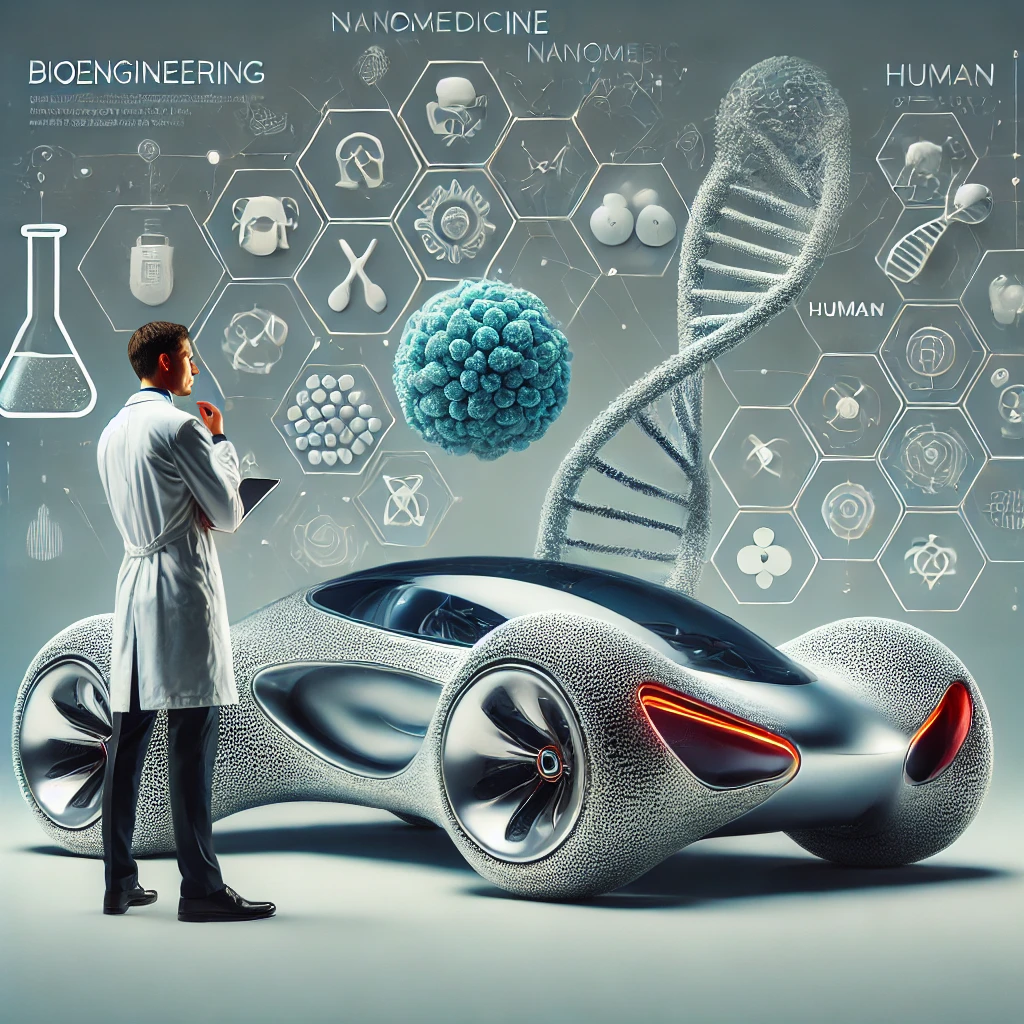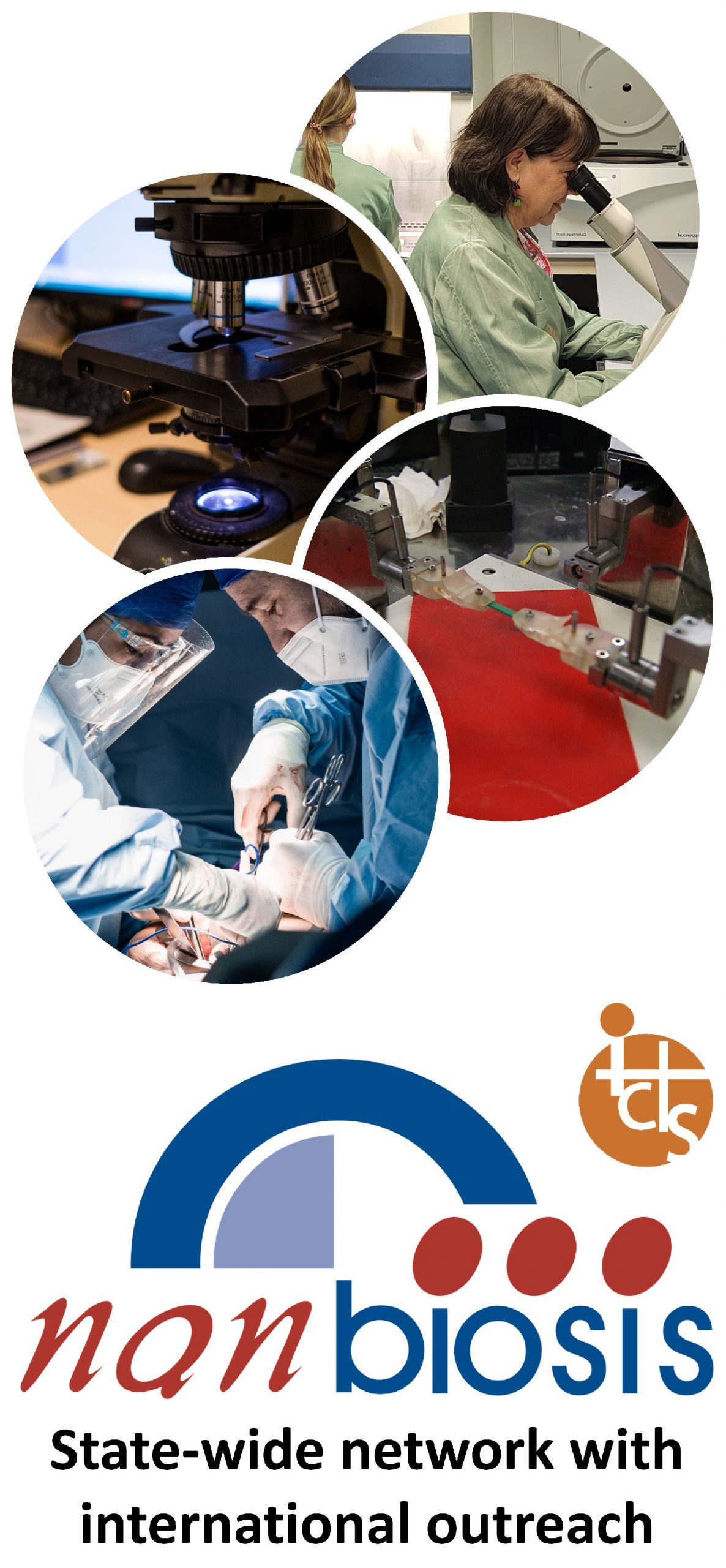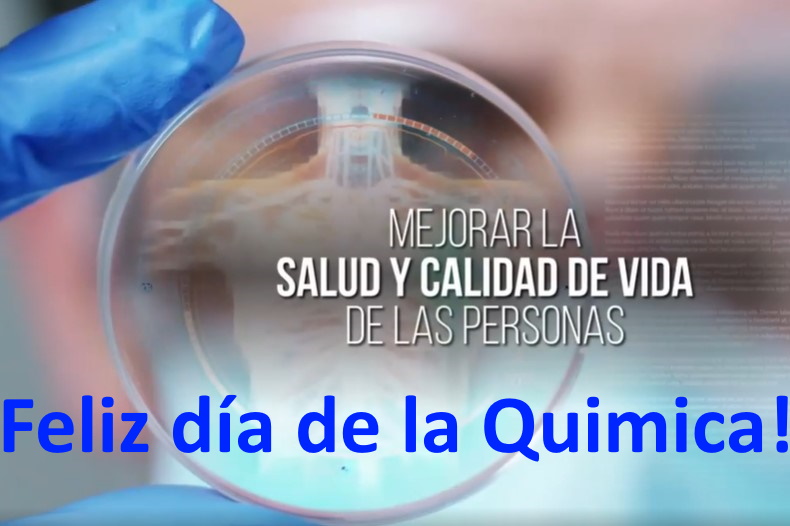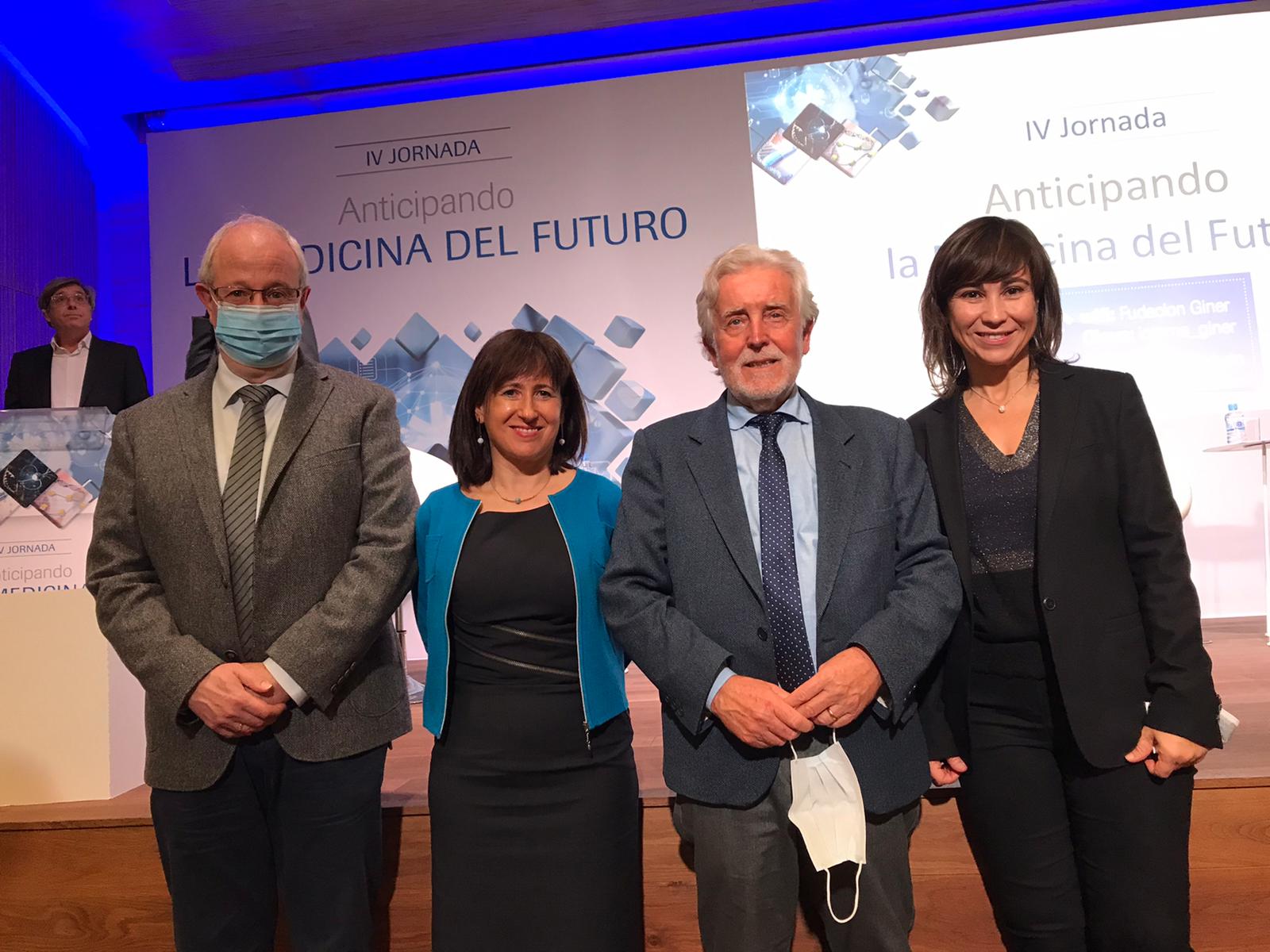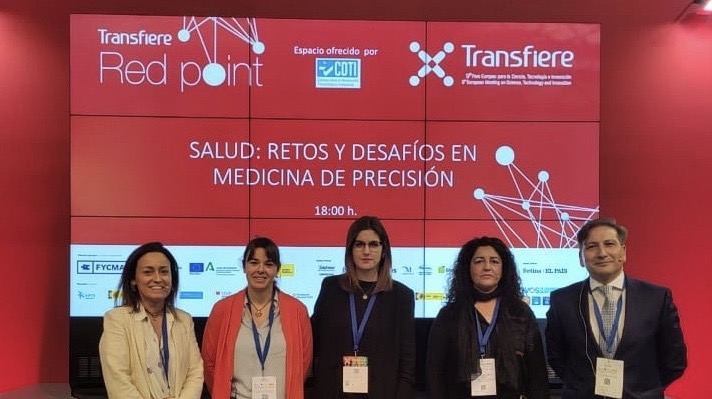CIBER-BBN: A New Car Brand?
CIBER-BBN: A New Car Brand?
You might think CIBER-BBN sounds like a car brand. And in fact, just like in the automotive world, engineers and scientists from multiple fields at CIBER-BBN are designing new diagnostic techniques and therapies tailored to the needs of the patients.
But what do those initials mean?
Designing and manufacturing a car requires the integration of many disciplines, all working in unison and in collaboration. In some areas of biomedicine, things work in a very similar way. CIBER stands for the Biomedical Research Networking Center (in Spanish, Centro de Investigación Biomédica en Red), created by the Instituto de Salud Carlos III (ISCIII). It is a scientific-technical support body for the Spanish healthcare system, and for society at large. So when we talk about “CIBER,” we’re referring to a public scientific consortium made up of a vast national network of more than 500 research and clinical groups, distributed across over 100 different institutions. This enormous structure is subdivided into 13 different research areas, each dedicated to a specific field of biomedical research.
And BBN is one of those areas.
Multiple Disciplines in One Area
CIBER-BBN stands for Bioengineering, Biomaterials and Nanomedicine. That makes it one of the most eclectic and multidisciplinary areas within CIBER. Let’s explore what each part means, explained by three prestigious researchers working in CIBER-BBN.
Bioengineering and Medical Imaging
Much like designing a car body, bioengineering involves creating comfortable and functional designs, except in this case, it’s for cells to feel at ease while performing their functions, growing faster, or aiding in tissue regeneration. Also, it’s hard to find a car these days without sensors telling us what’s going on. Likewise, bioengineering helps us analyze the images and signals our body emits, so we can detect, decode, and map what the eye cannot see.
“Through bioengineering, we’e designing sensors that capture signals produced by the body, whether electrical, optical, or chemical.”
—Dr. Olga Conde
“Through bioengineering, we’re designing sensors that capture signals produced by the body, whether electrical, optical, or chemical,” explains Dr. Olga Conde, Associate Professor at the University of Cantabria and a CIBER-BBN member since 2016. “These sensors must be small enough to be placed inside the body in a portable way, enabling continuous monitoring of chronic diseases and aging. Interpreting the large volume of signals and analyzing all this information is complex, so we develop computing systems, mostly based on Artificial Intelligence, that help clinical staff in decision-making. We also work on improving diagnostic techniques through automated analysis of medical images. This include new imaging techniques that allow better planning and real-time monitoring of interventions. For instance, we can now outline tumors in real time before removing them. This leads to improved recovery rates and more efficient use of resources.”
Biomaterials and Advanced Therapies
Like in the case of a car, the human body at some point may need parts repaired or replaced to function optimally. That’s where biomaterials and advanced therapies come into play, acting as spare parts for the body, designed to extend its life and improve component efficiency, promoting safer and longer-lasting performance.
“Biomaterials and advanced therapies are revolutionizing regenerative medicine“
—Dr. Selma Benito
“Biomaterials and advanced therapies are revolutionizing regenerative medicine,“ says Dr. Selma Benito, postdoctoral researcher at CIBER-BBN. She is working in tissue repair, regeneration, and wound healing within Dr. Pascual’s group at the University of Alcalá. She is also the Scientific Coordinator of NANBIOSIS Unit 17. “Biomaterials offer new ways to repair weakened tissues, such as abdominal wall defects. These are commonly known as hernias.” Dr. Benito explains that biomaterials act like “scaffolds or reinforcements” that support healing of weakened or torn tissues. Some of them are even equipped with antibacterial properties or are designed to be reabsorbed by the body, reducing postoperative risks. “Advanced therapies also promote regeneration of damaged tissues, speeding up the healing of hard-to-treat wounds like chronic ulcers or diabetic and pressure sores, while reducing inflammation and risk of infection.” These strategies not only improve the quality of life of the patients, but also help optimize healthcare system resources.
Nanomedicine
No matter how comfortable, stylish, safe, or customizable a car is, its main job is to get us where we want to go. That’s where the third branch of CIBER-BBN comes in: nanomedicine. This field focuses on designing nanoscale “vehicles” that deliver drugs to their precise destinations, wrap them to prevent early activation, and release them at just the right time. This way, we can control where our vehicle goes and when it acts.
“Though there’s still much to discover, nanomedicine is paving the way for a new era in fighting diseases like cancer”
—Dr. Eugenia Mato
“Though there’s still much to discover, nanomedicine is paving the way for a new era in fighting diseases like cancer,” says Dr. Eugenia Mato, a CIBER researcher affiliated with the Research Institute of Sant Pau Hospital in Barcelona and Associate Professor at the University of Barcelona. “One key to its success is nanoparticles: tiny biomaterials that can deliver drugs or genes directly into damaged cells in our tissues.” She gives a compelling example: “In cases of aggressive thyroid cancer, these advances, combined with better tumor understanding, are opening the door to more effective and personalized treatments. These approaches are likely to improve both patient quality of life and survival rates in the coming years.”
Beyond the Lab: The Medicine of the Future
Aside from having a well-designed car, who wouldn’t want a GPS to guide them efficiently to a cure? Just as a car needs a driver to reach its destination, CIBER-BBN aims to bring its research to real solutions for patients. The road is long and requires many steps and extensive knowledge. That’s why CIBER-BBN, alongside other institutions, created NANBIOSIS: a platform that offers services for doctors, researchers, and companies to tackle challenges they can’t address alone.
Biological chassis, nano-vehicles for drug delivery, safety, and personalization. For CIBER-BBN, the car… is you.
Credits
Eugenia Mato
Olga M. Conde
Selma Benito
Gabriel Alfranca
This article is part of a practical activity from the CIBER Communication Course, whose next edition will be held in May 2025 in Madrid.
What is NANBIOSIS?
The goal of NANBIOSIS is to provide comprehensive and integrated advanced solutions for companies and research institutions in biomedical applications. All of this is done through a single-entry point, involving the design and production of biomaterials, nanomaterials, and their nanoconjugates. This includes their characterization from physical-chemical, functional, toxicological, and biological perspectives (preclinical validation).
In order to access our Cutting-Edge Biomedical Solutions with priority access, enter our Competitive Call here.
NANBIOSIS has worked with pharmaceutical companies of all sizes in the areas of drug delivery, biomaterials and regenerative medicine. Here are a few of them:
